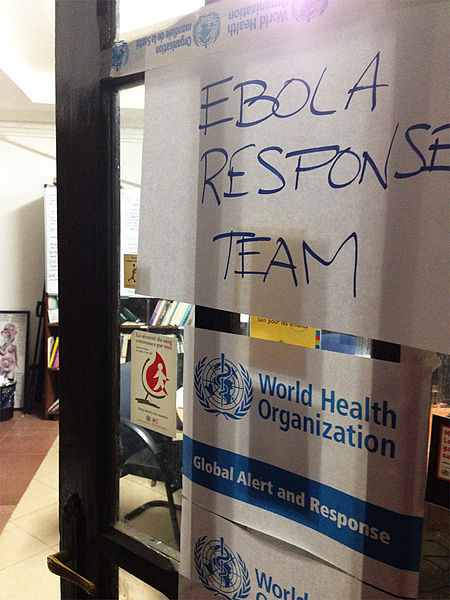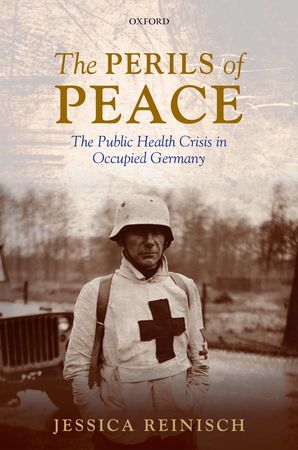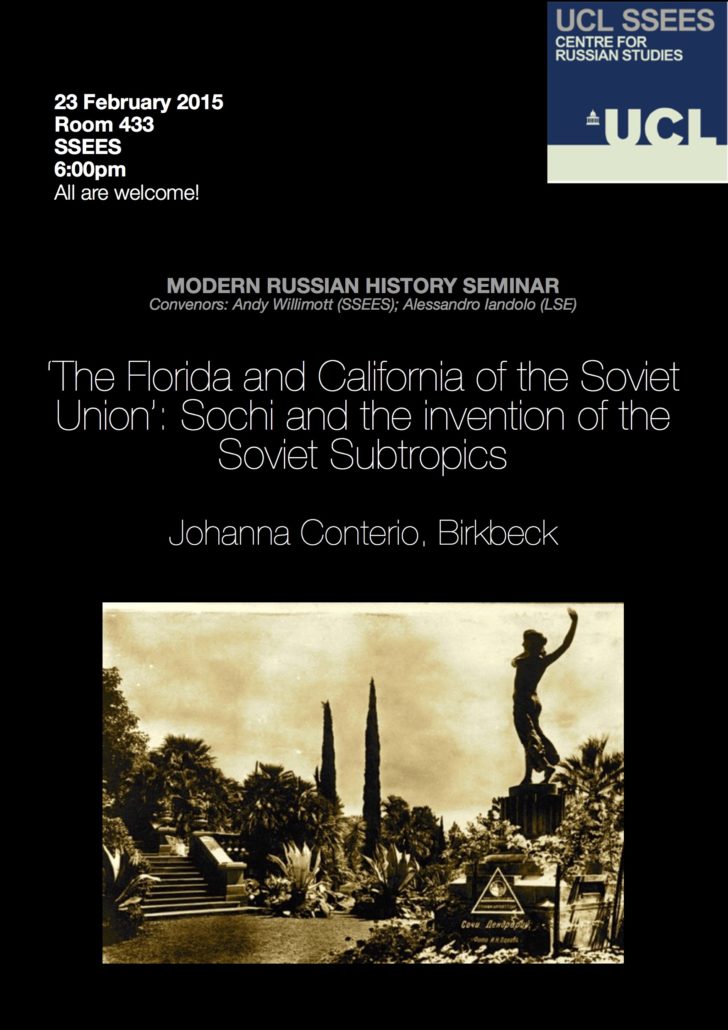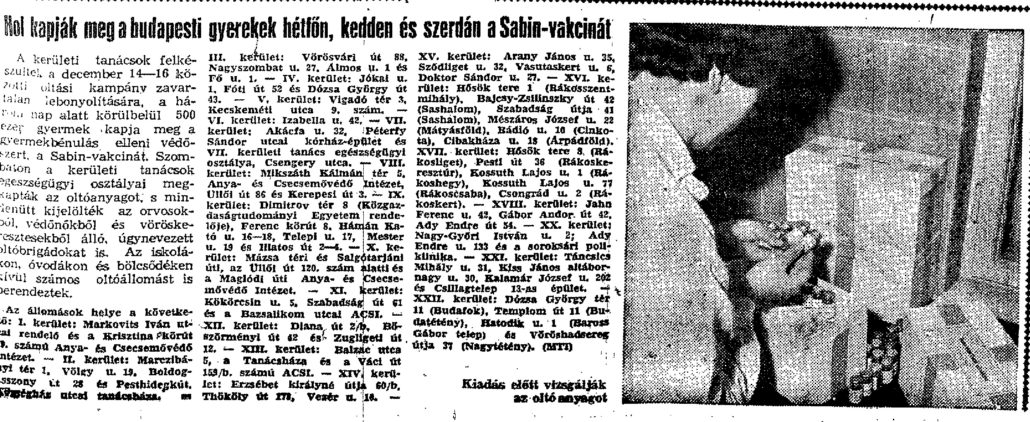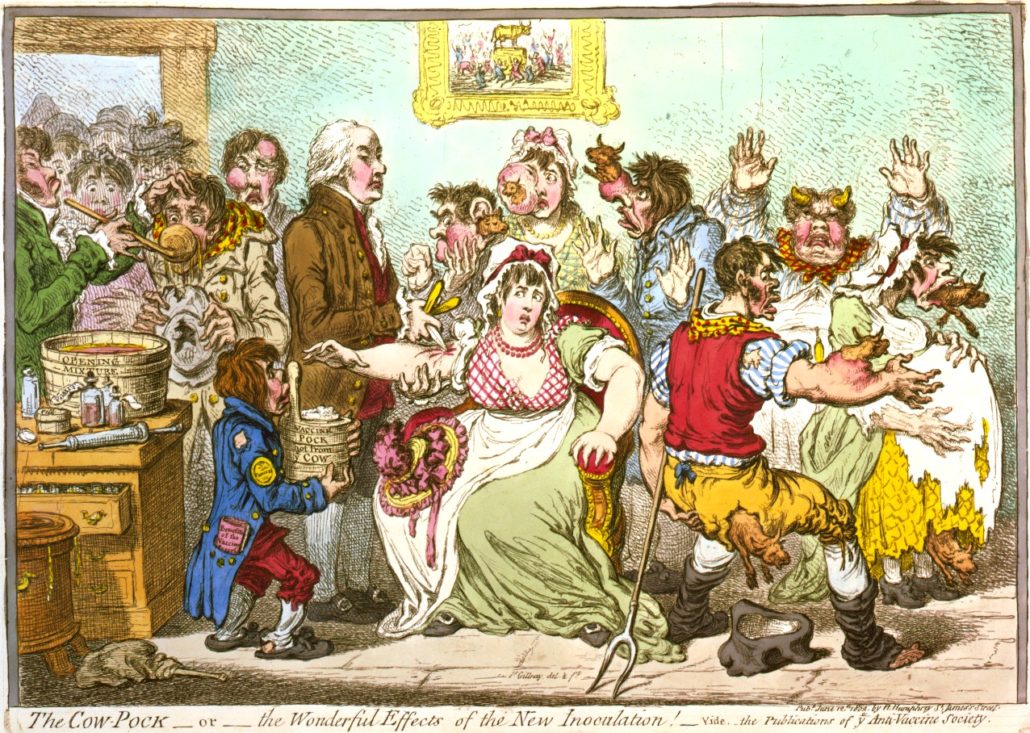On March 12 and 13, the University of Lausanne hosted a thought-provoking and intellectually rich conference on the ‘Globalization of medicine and public health: economic and social perspectives (1850-2000).’ Convened by Sanjoy Bhattacharya (University of York, UK), Thomas David (University of Lausanne, Switzerland), Pierre-Yves Donzé (Kyoto University, Japan), Davide Rodogno (Graduate Institute of International and Development Studies, Geneva, Switzerland), this inter-disciplinary meeting aimed to explore the roots, development and consequences of the intensive globalizing trends in medicine and public health since the mid-nineteenth century. As Davide Rodogno and David Thomas said in their opening remarks, the conference sought to provide a critical analysis of the emerging historiography of global health and narratives of globalization, primarily by connecting the history of public health with other approaches such as business and economic history, history of medicine, international history etc. Moreover, the conference aimed to move away from linear and simplistic narratives of international cooperation and harmony, and to study international health organizations as spaces of interrogation, contestation, opposition and imposition of ideas.
The first panel addressed a score of these themes and opened up a number of key questions in the historiography of global public health. Anne-Emanuelle Birn (University of Toronto, Canada) discussed complex ties between philanthropic organizations and global health agencies through the prism of the fraught relationship between two of the most important actors in this field – the Rockefeller Foundation and the WHO. In her analysis of the ups and downs in their cooperation between the 1940s and 1980s, Birn examined the RF’s (often indirect) role in defining the WHO’s approaches and priorities, its participation in the WHO’s personnel, and emphasized the key moments as well as tensions, conflicts and dilemmas in the relations between the two institutions. Her paper explored how these developments affected global health initiatives in the second half of the twentieth century, and how they shaped the current role of philanthropy in the field of global health. Erez Manela (Harvard University, USA) discussed the WHO’s campaign for the global eradication of smallpox in the 1960s and 1970s. Focusing primarily on the US perspective, Manela examined the circumstances of this signal event in the history of global health in the second half of the twentieth century, and asked how this programme managed to achieve its goal of eradication on a global scale in the midst of international conflict, when so many similar initiatives had failed. Manela placed the smallpox eradication programme in the context of the US-Soviet Cold War rivalry and the growing role of the global South in international politics following the de-colonization. A transnational network of experts succeeded in co-opting governmental power and the backing of inter-governmental agencies for the project of small pox eradication at the very moment when the US sought to improve its vulnerable international status, while the programme of international development gained increasing importance for the US government as a tool for containing the spread of Communism in the newly independent countries in Asia and Africa. Nitsan Chorev (Brown University, USA) presented her research on the emergence in the 1970s and 1980s of remarkable local pharmaceutical sectors in East Africa, and explored the structure and development of local pharmaceutical production in Kenya, Uganda and Tanzania in a comparative perspective. According to Chorev, the development of local pharmaceutical manufacturing was seen as an important industrial goal in these countries, as they hoped to free themselves from their dependence on multinational companies and to secure access to necessary medicines. Chorev emphasized three interrelated factors that contributed to significantly different levels of success of local pharmaceutical industries in the three countries: state policies, transnational ties and foreign aid in support of state policies, and capable local entrepreneurs with cross-national ties (the key role was here played by ethnic minorities, for instance Indian Kenyans with their educational ties to the UK and India and work experience multinational pharmaceutical companies). The discussion following the panel was rich and vigorous, and it explored the difference and similarities between the concepts of global and international, but also emphasized the missing link in all three presentations – the Soviet perspective.
The second panel sought to focus on “non-Western visions” in the history of global health. Marcos Cueto (Casa Oswaldo Cruz, Brazil) shed light on the establishment and role of the WHO’s African Regional Office (AFRO) in the 1950s and 1960s, and placed the history of this important regional health agency in the context of the Cold War rivalries and the ongoing struggle for independence in sub-Saharan Africa. While initially this office was led by European experts in tropical medicine, its activities and personnel soon reflected the changing political and social realities in Africa, and this led to the increasing number of African personnel and African member-states. AFRO produced important studies on malaria, yellow fever and onchocercasis, and contributed to the revival of tropical medicine as a discipline, but Cueto’s presentation offered a critical analysis of the complex political role and achievements of this regional agency. On the one hand, the existence and activities of AFRO may have indirectly helped the independence processes in the 1960s, but it also re-produced the dependency of the south of Africa on Western, colonial models, and encouraged problematic discourses in which the newly independent countries of sub-Saharan Africa were constructed as the most underdeveloped and anarchic region in the world in need of a new form of humanitarianism, while AFRO was constituted as an island of (Western-style) modernity and progress. Monica Saavedra (University of York, UK) presented her research on the involvement of Portuguese India in the WHO’s South-East Asia Regional Office, in the final years of the Portuguese colonial rule. Saavedra showed that the WHO and SEARO were not merely forums for scientific and technical exchange and cooperation in the area of health, but also an international political stage where Portugal struggled to lay claim to Portuguese India and to legitimate its rule. This ambiguous relationship with SEARO resulted in political interests overshadowing the health needs of the population, so that official sources were dominated by political manouvres and agendas. The SEARO archive reveals a selective way of dealing with the international health affairs, and illustrates Porugal’s efforts to keep a flimsy balance between international approval and self-interest.
The third panel dealt in some detail with the history of pharmaceutical practices, initiatives and marketing in a global perspective. Jeremy Greene (Johns Hopkins University, USA) presented his research on critical discourses regarding the uneven distribution of access to life-saving pharmaceuticals in different parts of the world between the 1960s and 1980s. Greene explored the key discussions of the role that access to medicines played in international political and health development, and looked at positions of a number of stakeholders – doctors, policymakers, lawyers, manufacturers – in this global mapping of therapeutic inequalities. Julia Salle Younge (Hosei University, Japan) traced the emergence of a global vaccine industry model. According to Yongue, combination vaccines have become the global standard of vaccination in all developed nations — save one. Her presentation then traced the process that led to the formation of a global model for the vaccine industry while comparing two distinctively different cases, the French vaccine industry, which played a central role in the acceptance and propagation of combination vaccines and the Japanese vaccine industry, whose government, until only recently, has promoted the ‘de-combining’ of vaccines as the best means of preventing adverse reactions. The final speaker of the panel, Johanna Conterio Geisler (Birkbeck, UK), provided the sorely missing Soviet perspective and countered the historiographical narratives of the Soviet Union as increasingly isolated and isolationist in the interwar years. Her research explored the development of Soviet pharmaceutical industry in the global context of the 1920s and 1930s, and looked at how Soviet medical and health experts engaged with Western networks and approaches. They actively sought external influences and Western – US – models in order to spur the development of pharmaceutically crucial agricultural products and raw materials in the Soviet peripheries, and aimed to prevent the Soviet dependence on international pharmaceutical monopolies. While Soviet borders were closing down, outside influences continued flowing in.
In the fourth panel, focusing on actors and networks, David Thomas and Davide Rodogno discussed their ongoing project on the history and genealogy of public health fellowships in the twentieth century. They sought to connect the post-WW2 WHO international fellowships programme to its predecessors – the Rockefeller Foundation and UNRRA fellowships. Their research explored continuities and ruptures in this history, and focused on the concepts of human capital and development which informed and shaped the structure and goals of the different health fellowship programmes across the twentieth century. Clifford Rosenberg (CUNY, USA) analyzed the RF International Health Board’s attempt to establish a field programme in French Algeria in the 1920s, following the successful anti-TB programme it funded and ran in France during WWI. Rosenberg’s research explored this failed attempt in a political and colonial perspective, and placed the RF’s initiative in the context of the emerging international institutions and French and Algerian colonial patronage networks. Paul Weindling (Oxford Brookes, UK) presented his research on the RF’s social medicine healthcare experiments in the twentieth century. His paper focused on the RF-funded schemes in Natal, South Africa, in the 1950s. Weindling traced the RF’s efforts to establish a Department of family practice at Durban, the University of Natal, in a new medical faculty for non-white students, and its attempts to obtain guarantees that the non-white graduates would get government posts. While the Durban scheme ultimately failed in the context of the South African apartheid, Weindling argued for its great significance for understanding the history of the RF’s involvement in social medicine healthcare experiments, and he related the Natal health centre to other earlier attempts of the RF to combine primary healthcare with rural development and cultural and social factors.
The subsequent panel dealt with a variety of historical approaches to analyzing ‘Diffusions and models’ in global healthcare. Thomas Zimmer’s paper addressed the history of the Malaria Eradication Programme in the 1950s and 1960s, and specifically explored the role of the World Health Organization in the development and implementation of this initiative. Zimmer (Freiburg University, Germany) argued that, although the WHO financial and material contributions to the MEP were significantly lower than those of the main donor countries (such as the US), the WHO played a fundamental role in coordinating and codifying the Programme by establishing pilot projects which served as future models, lent legitimacy to the very idea of eradication, served as an intermediary between donor and developing countries, and was pivotal in evaluating ongoing projects. The paper concluded that the global malaria eradication was ultimately a WHO project, although the WHO could not have possibly launched or run it by itself and was at mercy of the ebbs and flows of international politics. Pierre-Yves Donze discussed the theme of diffusion and globalization of health models from a slightly different perspective – that of economic entrepreneurs and the history of industrial business. At the centre of Donze’s story was the German electro-medical equipment maker Siemens-Reiniger-Werke and its attempts to re-enter non-European (Latin American, as well as Asian and African markets) in the aftermath of WWII through the project of hospital construction. Instead of merely exporting goods, SRW organized and directed an informal association called Deutsche Hospitalia, which gathered around thirty German manufacturers. They were all involved in constructing and fully equipping the final product – the German hospital, which was then offered to the local governments. Donze analysed the initiative in the context of globalizing trends in medicine, and discussed how SRW contributed to these trends. Yi-Tang Lin (University of Lausanne, Switzerland) critically analysed the nature and production of WHO health statistics in different regions and areas, questioning the value of statistics as neutral markers of local health programmes and placing them in proper socio-political contexts. Lin concluded that the WHO’s strategy of standardization was not making a unique standard, but giving different instructions to countries with different public health administration capacities, and using statistics as a tool for legitimizing health programmes in different countries. Moreover, the WHO forged a network of knowledge transfer by providing fellowships for national health statisticians, inaugurating short-term training centres, and employing a statistician or economist for every regional office.
The final panel of the conference was titled ‘The world as a laboratory.’ Agata Ignaciuk (University of Granada, Spain) presented a comparative study of the leading European and US pharmaceutical companies’ strategies and practices for marketing the contraceptive pill in Francoist Spain and socialist Poland in the 1960s and 1970s. Although the two markets were radically different from the West European and American ones, as well as form each other, Ignaciuk was able to identify striking similarities. In the Spanish case, although sale and advertising of contraception had been banned until 1978 and the pill was marketed as a therapeutic drug, the pharmaceutical strategy was not fundamentally different from that practiced in Western Europe or the US, and focused on normalizing the idea of family planning among physicians and the broader public. According to Ignaciuk, this helped legitimize the idea of contraception in Spain, and aided its social and medical acceptance well before 1978. On the other hand, although the Western pharmaceutical companies were significantly less successful in the context of Poland’s nationalized industry and state markets, their marketing strategies and persistent attempts to approach Polish institutions throughout the 1960s and 1970s prepared the market for a massive expansion in the 1990s. Dora Vargha (Birkbeck College, UK) discussed the development and coordination of polio live vaccine trials in the late 1950s and early 1960s in as many as fifteen different countries on four continents. Vargha’s presentation revised the common historiographical understanding of the globalization of pharmaceutical research, and demonstrated that the 1950s and 1960s were in fact the crucial decades for the internationalization of drug testing, while polio vaccine trials were among the first truly global phenomena in twentieth-century medicine. Her paper shed light on the nature, assumptions and mechanics of international cooperation between health institutions, governments and individual researchers in organizing polio vaccine trials and evaluating their results. Sarah Hartley (University of York, UK) focused on the international, regional and colonial politics of nutrition in British Colonial Fiji over the two decades after WWII in order to assess how the relationships between various health agencies – UN, WHO and FAO bodies, as well as regional and colonial administrations and offices – affected the design and delivery of nutrition programmes, and the development of international health. Hartley showed how the South Pacific Commission (a Western dominated multi-governmental agency), the South Pacific Health Service (the British and New Zealand colonial health service), and the regional offices of WHO and FAO sought to shape health policy in accordance with their individual ideological and security needs in the South Pacific region. The resulting networks of political and professional allegiance created a patchwork of practice in the field of nutrition across the South Pacific.
In the final analysis, this conference offered a rich and sophisticated account of the complex political and economic circumstances in which twentieth-century international health projects and initiatives emerged and developed – the vagaries of the Cold War constituted the core theme of most presentations. Many papers successfully explored the convoluted relations between pharmaceutical businesses and health organizations; others sought to evaluate the role of experts, their intellectual trajectories and meeting places, as well as their attempts to co-opt political governments for various unorthodox international health endeavours in the context of extreme political rivalries. The conference also emphasized the multiple effects of colonialism and de-colonization on the development of international medicine and health, and several participants attempted to move away from exclusively Anglo-American and Francophone accounts of health globalization. At the same time, while the conference aimed to engage the discussion of scales of historical analysis and to shed light on how international public health programmes were implemented at the local level, it did not devote enough attention to exploring the wealth of social and cultural consequences of such globalizing forces in different parts of the world. Most papers addressed institutional histories or discussed the role and discourses of individual experts, researchers or health administrators, and offered almost exclusively top-down accounts. Many of these narratives would have likely been significantly different – or at least enhanced – if told from the perspective of cultural and social history, history from below and medical anthropology: how did such important international medical and health projects, plans and initiatives transform the social micro-universe of those on the receiving end? did these health programmes induce any significant cultural shifts in how people – patients, physicians, lawmakers – in different parts of the globe thought of and defined illness, death, medicine, political ideology or nation and internationalism? how did the globalization of healthcare and medicine change everyday lives and human interactions? Some of these themes were occasionally touched upon in the course of the conference, but they certainly remain important potential topics for future meetings.

